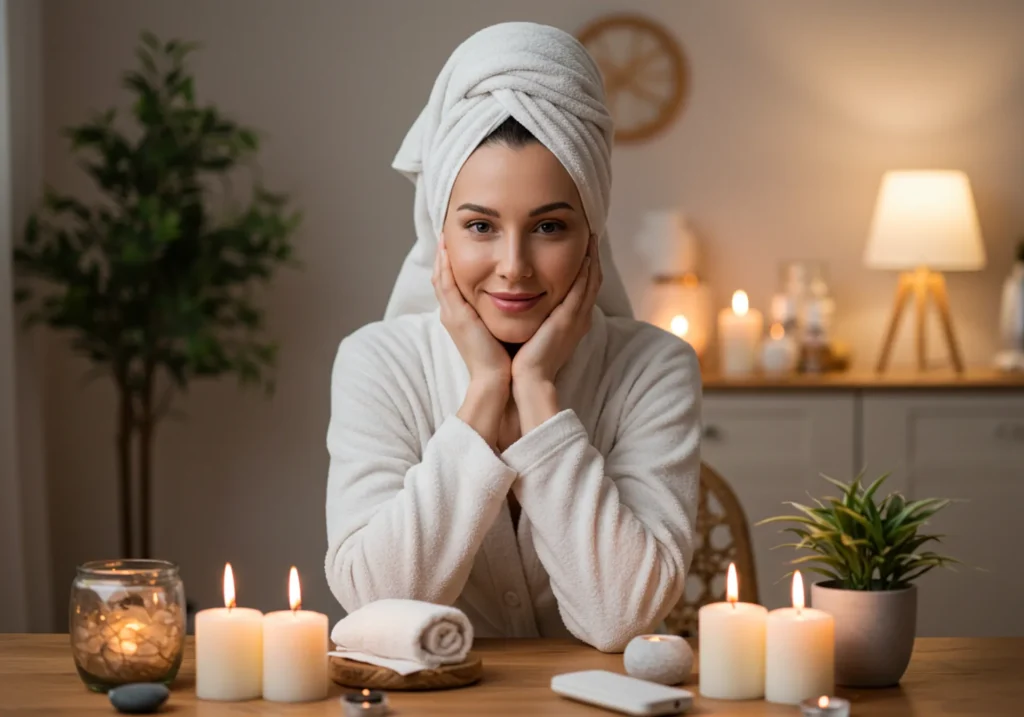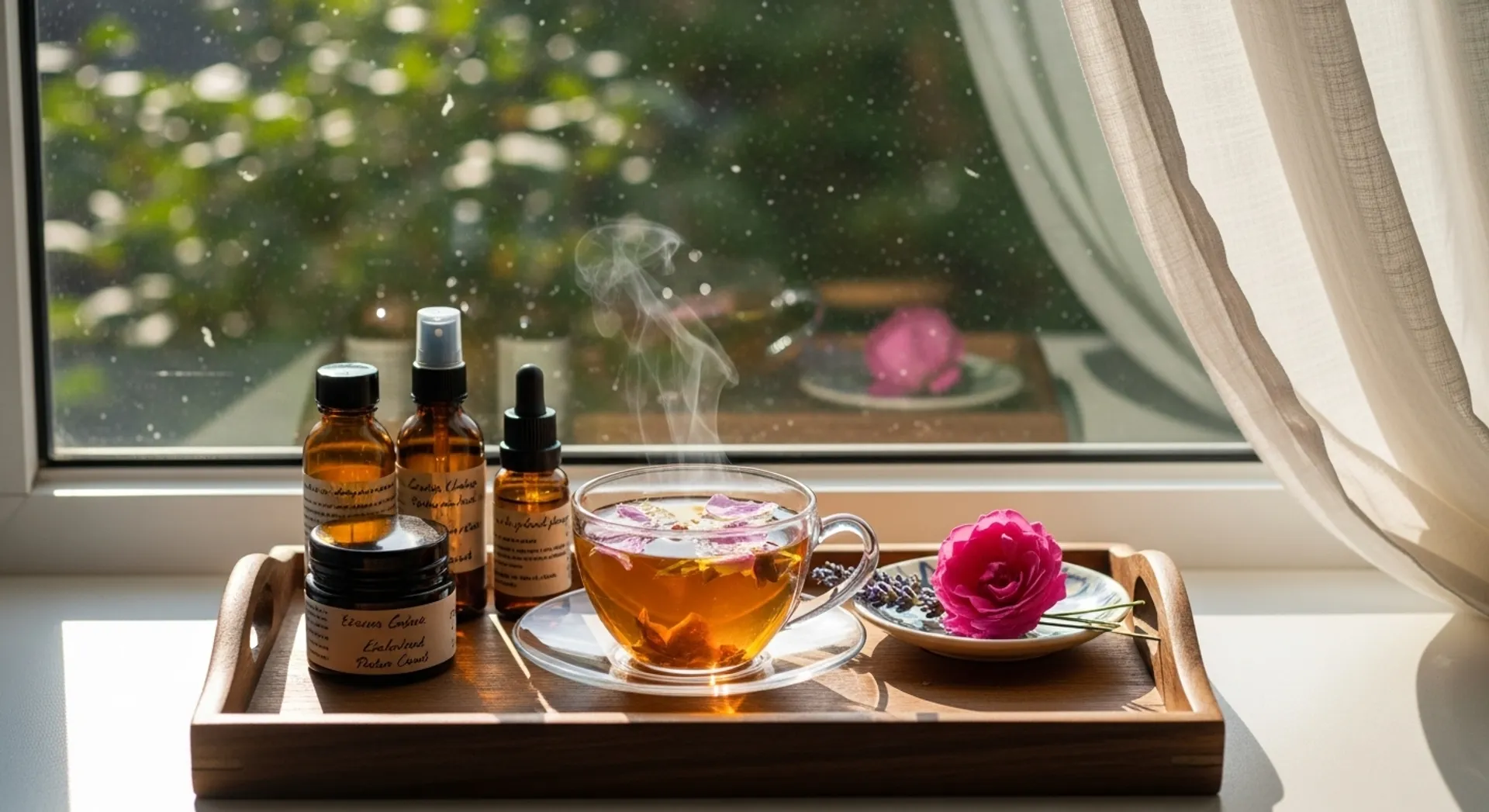In today’s fast-paced world, we often focus on external beauty — skincare routines, hair treatments, and makeup — to enhance our physical appearance. However, true beauty goes beyond the surface. Self-care isn’t just about looking good — it’s about feeling good, nurturing your mental well-being, and cultivating inner peace. When we take care of our minds, we radiate a sense of calm and confidence that transcends physical appearance. In this blog, we’ll explore the powerful connection between self-care and mental health, and how focusing on both can promote lasting healing and beauty from the inside out.
1. The Connection Between Self-Care and Mental Health
When you think of self-care, you might picture a relaxing bath or a skincare ritual. While these activities are excellent for relaxation, self-care encompasses more than just pampering your body — it’s also about nourishing your mind and emotions. Mental health is just as crucial as physical health, and both are intertwined. When we prioritize self-care for our minds, we cultivate a sense of calm, resilience, and emotional balance that benefits our overall well-being.
A. Stress Relief
Chronic stress is a major contributor to both mental and physical health problems. It can negatively affect your skin, your mood, and even your immune system. Self-care practices like mindfulness meditation, breathing exercises, or even a relaxing walk in nature can lower stress levels and help you regain your inner peace. By reducing stress, you can enhance your overall sense of happiness and mental clarity.
B. Emotional Well-Being
Taking time for yourself allows you to process emotions in a healthy way. Engaging in self-care helps you develop emotional resilience, enabling you to better manage challenges in your daily life. Whether it’s journaling, speaking to a therapist, or simply spending time with loved ones, self-care nurtures emotional health and helps you stay grounded.
2. Simple Self-Care Practices That Can Heal Your Mind
Now that we understand the connection between self-care and mental well-being, let’s explore some effective self-care practices that can help heal your mind and create a sense of inner peace and balance.
A. Meditation and Mindfulness
Meditation is one of the most effective ways to calm your mind and reduce stress. By taking a few moments each day to sit in silence and focus on your breath, you can lower your anxiety, improve focus, and cultivate a sense of calm.
-
How to practice: Find a quiet place, sit comfortably, and close your eyes. Take deep breaths, focusing on each inhale and exhale. If your mind starts to wander, gently bring it back to your breath. You can start with just five minutes a day and gradually increase the duration.
Benefits: Meditation helps with stress management, improves emotional health, and enhances mental clarity. Studies also show that mindfulness practices can reduce anxiety, improve sleep, and boost overall happiness.
B. Gratitude Journaling
Journaling can be a powerful tool for mental healing. By writing down what you’re grateful for each day, you shift your focus from stress and negativity to positivity and appreciation. Gratitude journaling helps you cultivate a positive mindset, which can improve your emotional resilience and reduce feelings of sadness or anxiety.
-
How to practice: Every day, take a few minutes to write down three things you’re grateful for. These can be big or small, such as “I’m grateful for my family” or “I’m thankful for a warm cup of coffee in the morning.”
Benefits: Gratitude journaling promotes a sense of happiness, boosts mood, and can lead to better overall mental health. Focusing on the positive aspects of life helps you appreciate what you have and reduces stress.
C. Physical Activity and Movement
Exercise is a well-known method for releasing tension, improving mood, and boosting mental health. When you exercise, your body releases endorphins, which are chemicals that promote happiness and reduce stress. Whether it’s a full workout, yoga, dancing, or just going for a walk, physical movement supports both mental and physical well-being.
-
How to practice: Find an activity that you enjoy, whether it’s a gentle yoga flow, a brisk walk in nature, or an intense gym session. Aim for at least 20-30 minutes of physical activity a few times a week to experience the mental health benefits.
Benefits: Regular physical activity reduces stress, combats anxiety, and improves overall mood. It also promotes better sleep, enhances cognitive function, and helps you maintain a healthy weight — contributing to a sense of overall well-being.
D. Taking Time for Rest and Relaxation
In our busy lives, it’s easy to overlook the importance of rest. However, taking time to relax and recharge is essential for both your mental and physical health. Whether it’s a long soak in a warm bath, listening to calming music, or simply reading a book, taking time for rest helps you replenish your energy and gives your mind a chance to reset.
-
How to practice: Set aside time each day to unwind. Turn off your phone, dim the lights, and engage in a relaxing activity that helps you disconnect from the stresses of the day.
Benefits: Regular rest and relaxation help to lower stress levels, improve focus, and allow your body to heal. Over time, making relaxation a priority can improve your emotional health and promote a calm, centered mindset.
E. Connecting with Nature
Spending time in nature has been shown to improve mood, reduce stress, and enhance overall mental health. Whether it’s a walk in the park, hiking in the woods, or simply sitting outside and enjoying the fresh air, connecting with nature can be incredibly therapeutic for your mind.
-
How to practice: Take time every week to spend time outdoors, whether it’s through a leisurely walk, a visit to a botanical garden, or simply sitting in a quiet outdoor space.
Benefits: Nature has a calming effect on the mind, reducing feelings of stress, anxiety, and depression. It also promotes mindfulness and helps you feel more connected to the world around you.
3. The Role of Skincare in Self-Care and Mental Healing
While self-care is primarily about nurturing your mind and emotions, your skin and appearance can also play a role in how you feel. Taking the time to pamper your skin not only promotes physical beauty but also boosts your mood and emotional well-being. Skincare rituals, like applying a nourishing face mask or enjoying a relaxing facial massage, can help you slow down and take a mindful approach to self-care.
A. Creating a Calming Skincare Routine
-
Focus on creating a routine that incorporates relaxation into your skincare. Use products that help you unwind, such as a soothing face mask, calming essential oils, or a gentle facial massage.
-
Take your time during your routine, enjoying each step without rushing, allowing your mind to relax as you care for your skin.
B. The Psychological Benefits of Skincare Rituals
When you focus on your skincare, you’re not only taking care of your physical appearance but also giving yourself the opportunity to relax and decompress. This time spent focusing on yourself, without distractions, can enhance your mental state, reduce stress, and promote a sense of well-being.
4. Conclusion
True beauty is more than just skin deep — it comes from within. Self-care is a powerful tool for mental healing, helping you find balance, manage stress, and nurture your emotional well-being. By incorporating practices like meditation, exercise, gratitude journaling, and relaxation techniques into your daily routine, you can cultivate a sense of peace, joy, and radiance that shines through in every aspect of your life.
Remember, self-care isn’t selfish — it’s essential. When you take the time to care for your mind, your skin, and your soul, you’ll experience a holistic glow that goes beyond physical appearance and touches every part of your life. Take a moment today to practice self-care and allow yourself to heal from the inside out.




